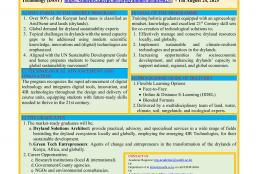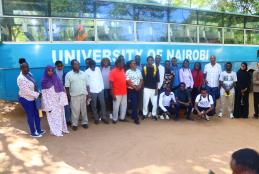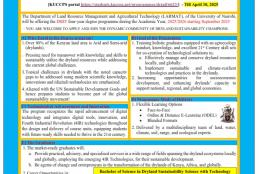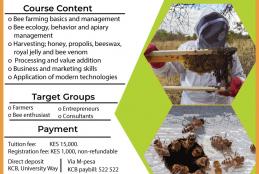KUCCPS INTRA UNIVERSITY TRANSFER OPEN- APPLY FOR BSC DRYLAND SUSTABILITY SCIENCE AND TECHNOLOG Y
Are you fascinated by the unique challenges and opportunities presented by dryland environments - such as water scarcity, land degradation, biodiversity loss, and climate change
The answer is right here!!









